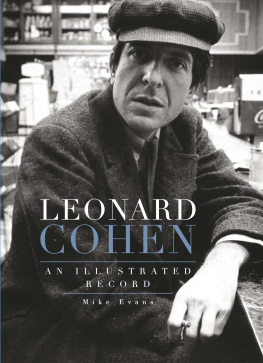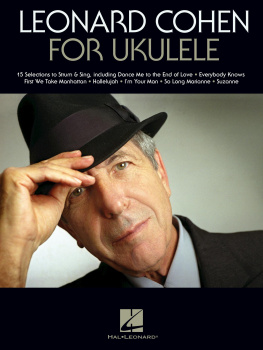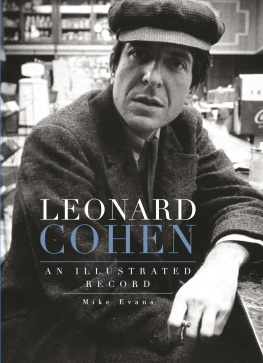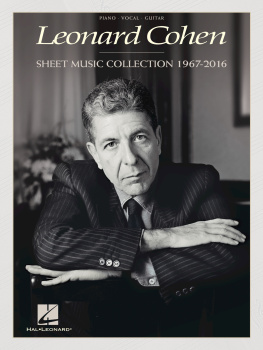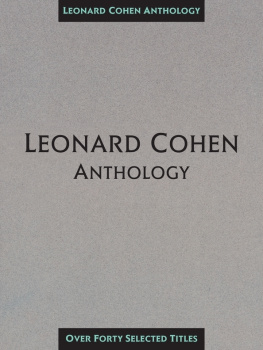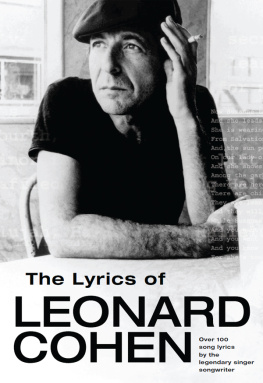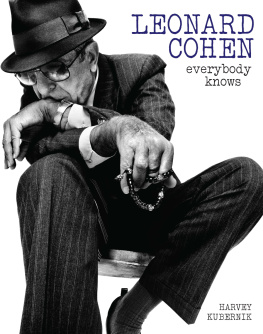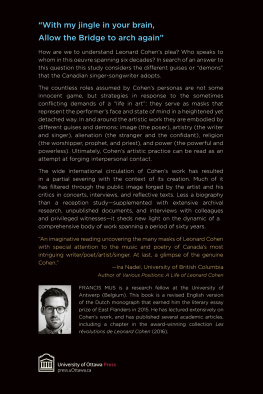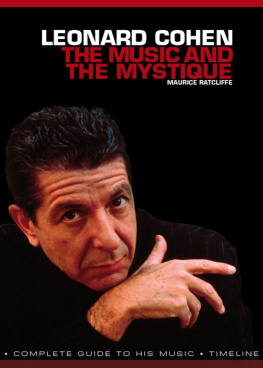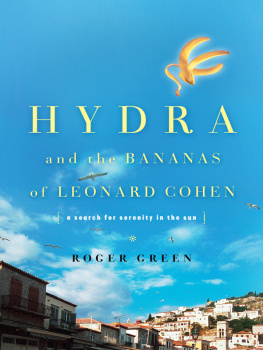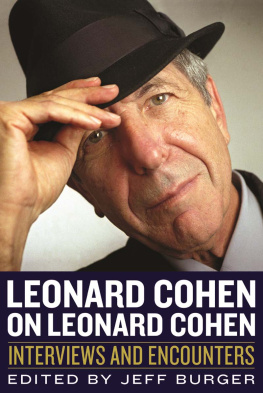Editors of Plexus - Leonard Cohen: An Illustrated Record
Here you can read online Editors of Plexus - Leonard Cohen: An Illustrated Record full text of the book (entire story) in english for free. Download pdf and epub, get meaning, cover and reviews about this ebook. year: 2017, publisher: Plexus Publishing, genre: Non-fiction / History. Description of the work, (preface) as well as reviews are available. Best literature library LitArk.com created for fans of good reading and offers a wide selection of genres:
Romance novel
Science fiction
Adventure
Detective
Science
History
Home and family
Prose
Art
Politics
Computer
Non-fiction
Religion
Business
Children
Humor
Choose a favorite category and find really read worthwhile books. Enjoy immersion in the world of imagination, feel the emotions of the characters or learn something new for yourself, make an fascinating discovery.
- Book:Leonard Cohen: An Illustrated Record
- Author:
- Publisher:Plexus Publishing
- Genre:
- Year:2017
- Rating:3 / 5
- Favourites:Add to favourites
- Your mark:
- 60
- 1
- 2
- 3
- 4
- 5
Leonard Cohen: An Illustrated Record: summary, description and annotation
We offer to read an annotation, description, summary or preface (depends on what the author of the book "Leonard Cohen: An Illustrated Record" wrote himself). If you haven't found the necessary information about the book — write in the comments, we will try to find it.
Leonard Cohen: An Illustrated Record — read online for free the complete book (whole text) full work
Below is the text of the book, divided by pages. System saving the place of the last page read, allows you to conveniently read the book "Leonard Cohen: An Illustrated Record" online for free, without having to search again every time where you left off. Put a bookmark, and you can go to the page where you finished reading at any time.
Font size:
Interval:
Bookmark:
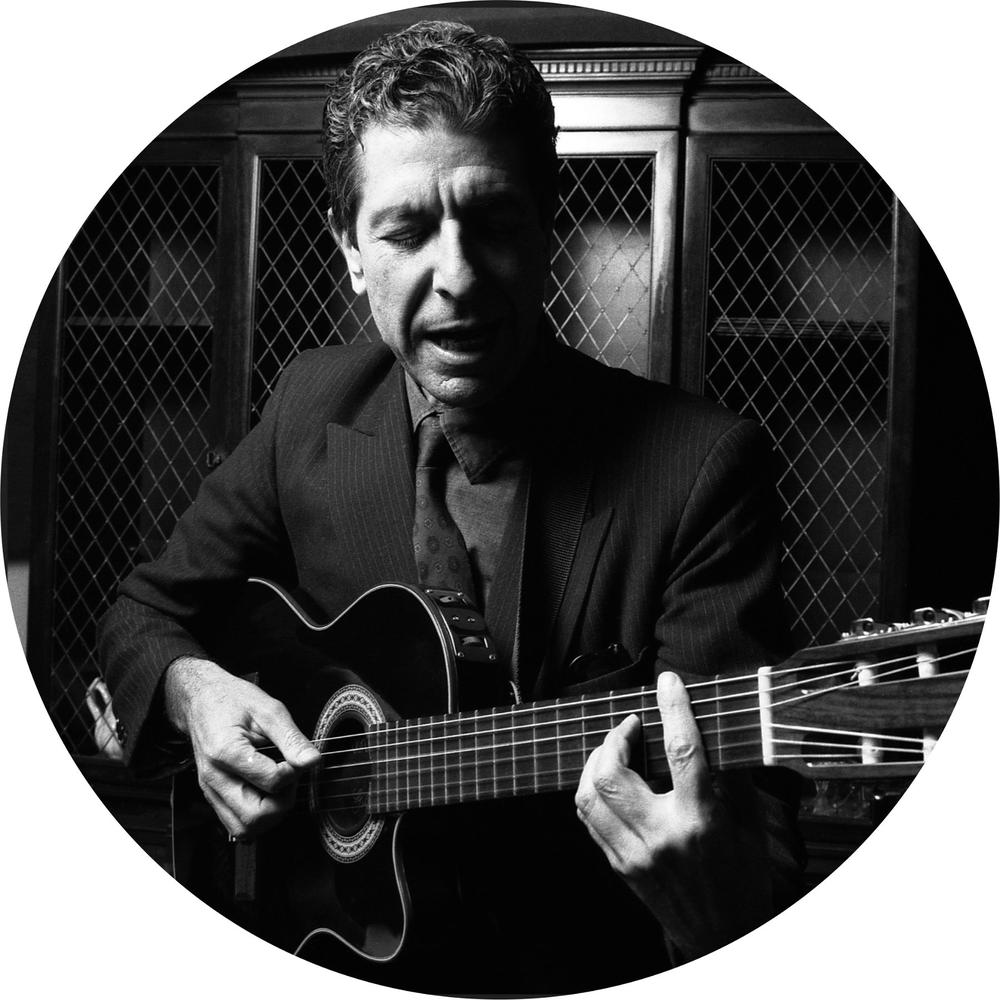
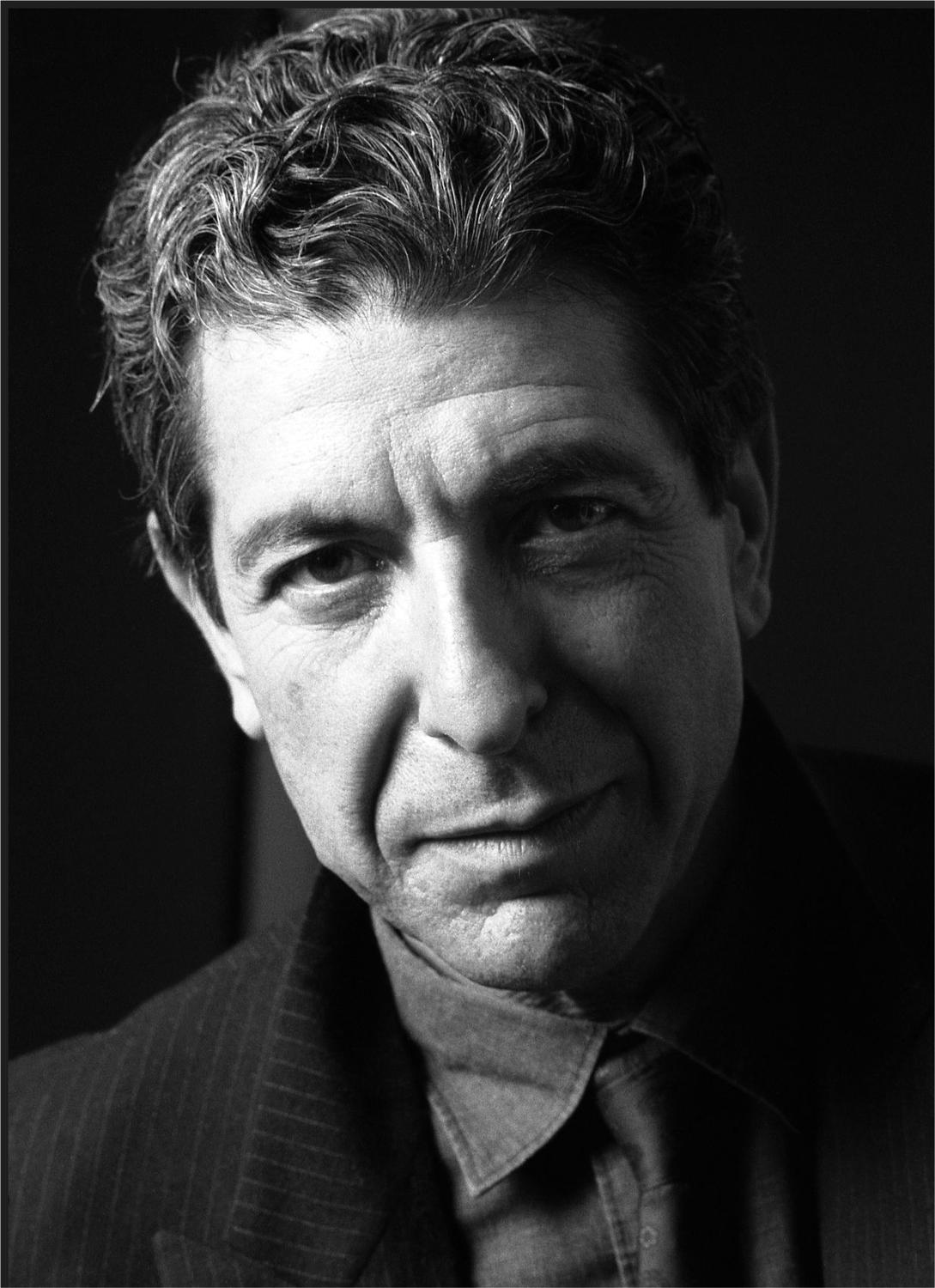
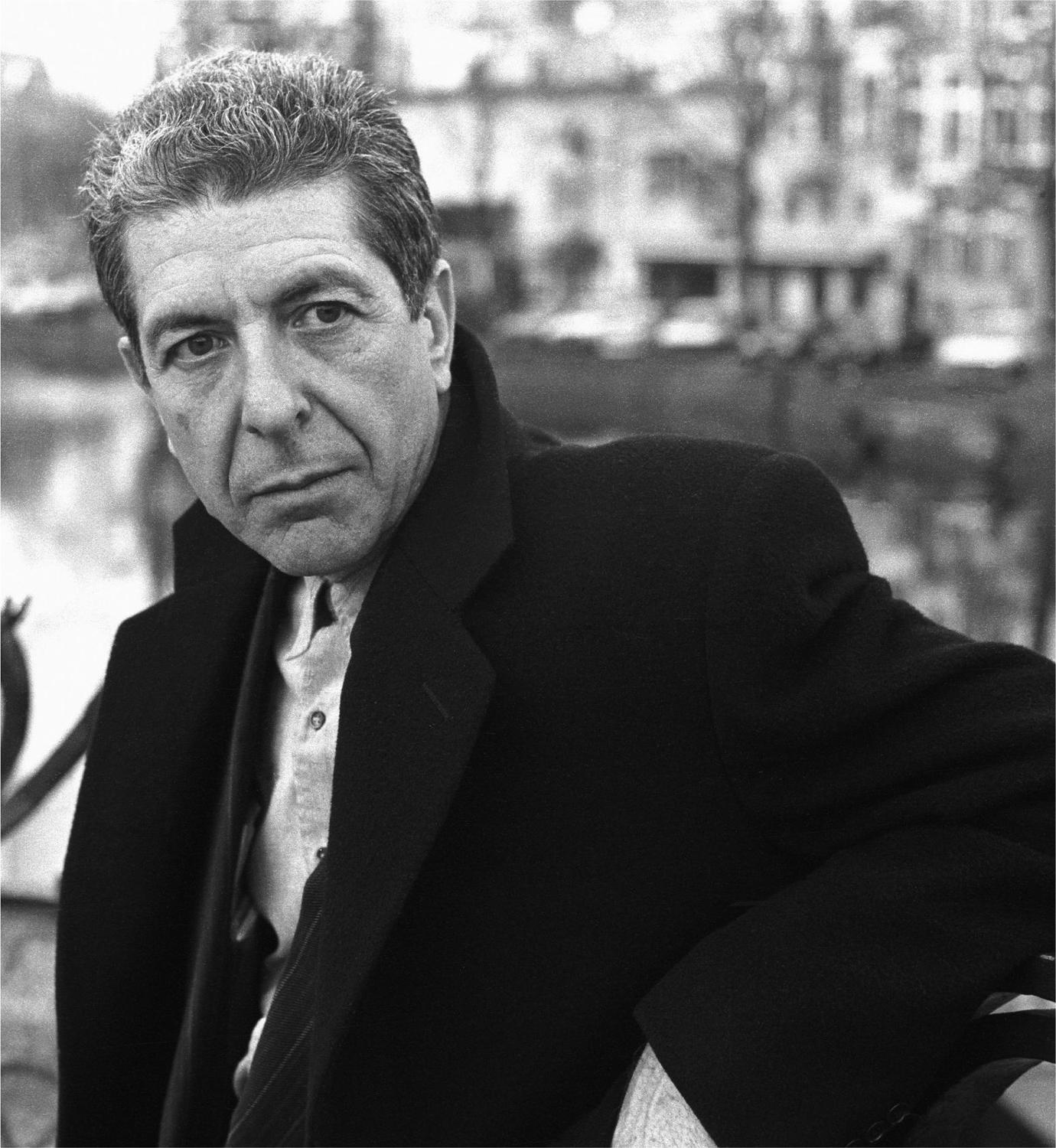
Back then I was very self-confident. I had no doubts that my work would penetrate the world painlessly. I believed I was among the great.
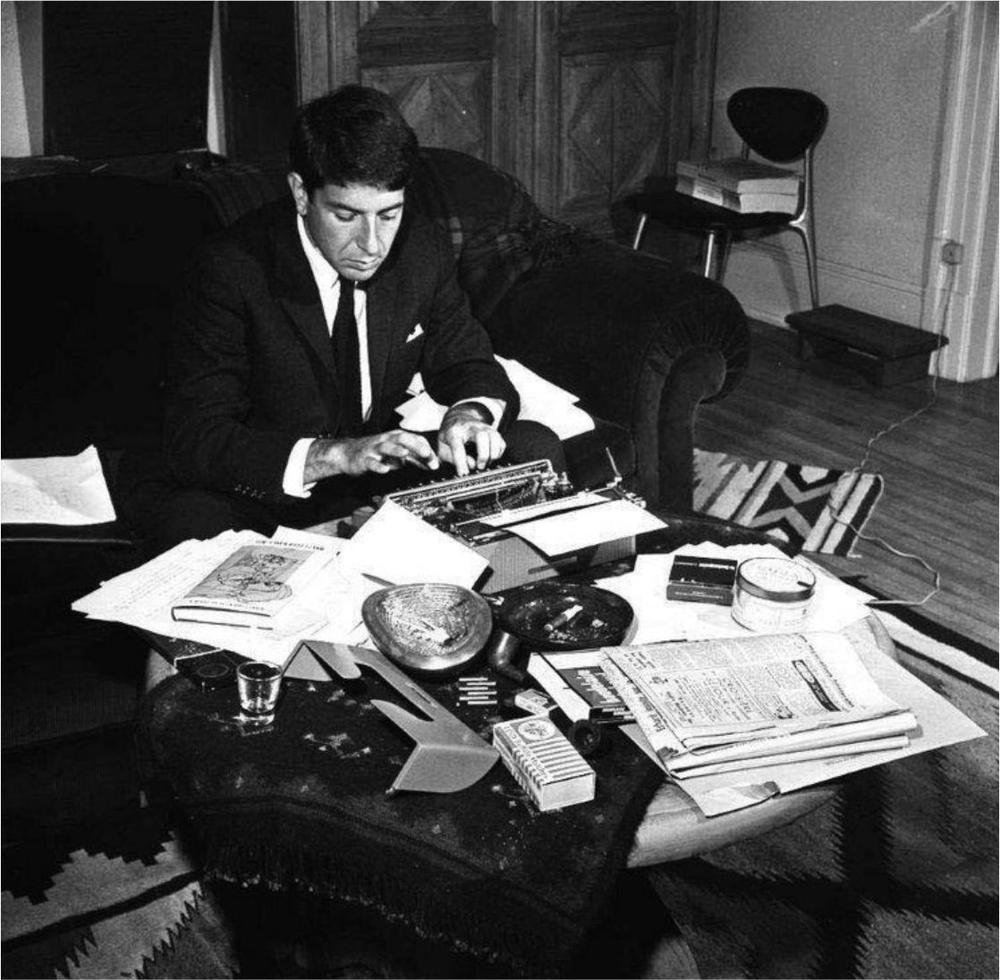

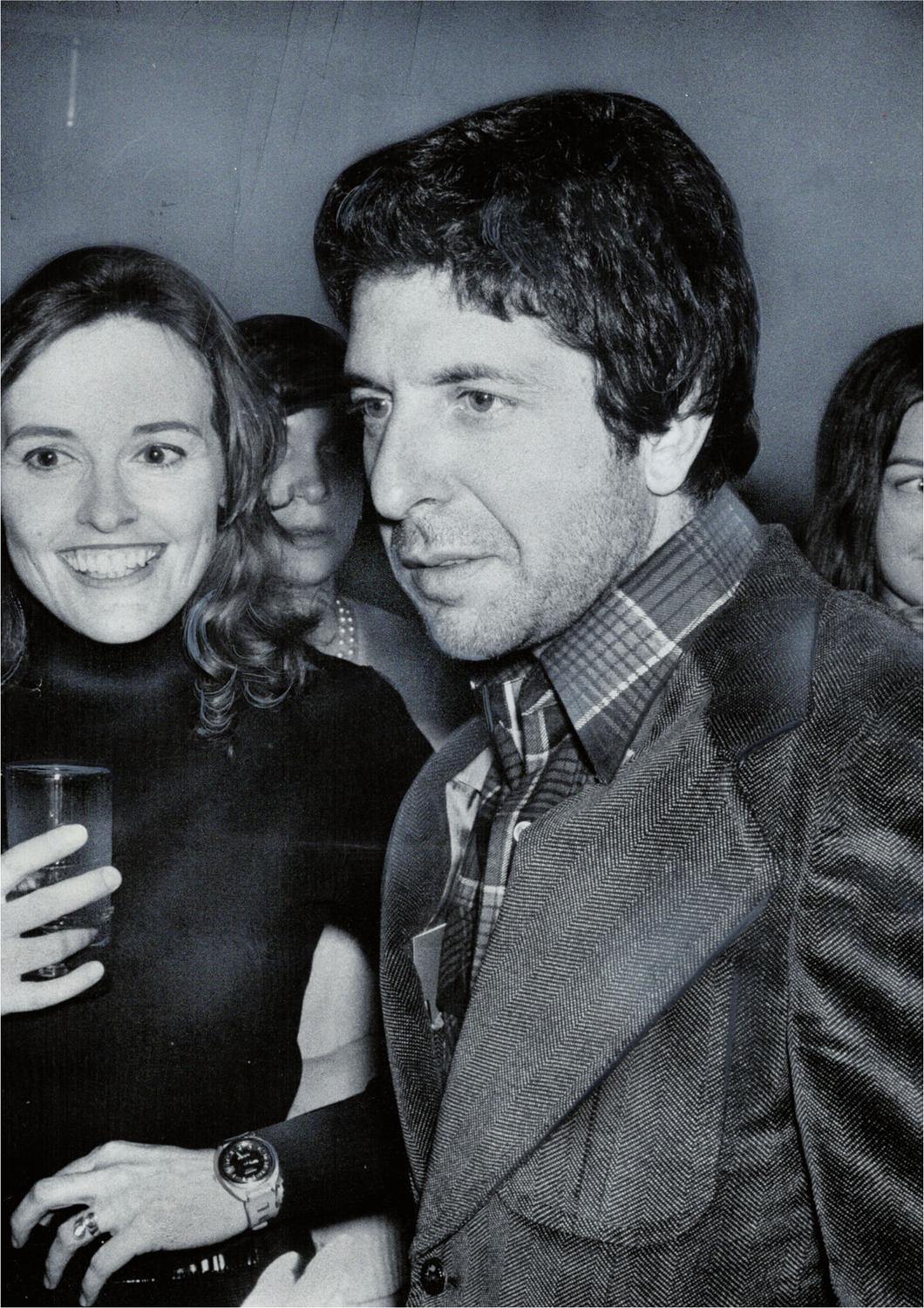
Leonard Cohen, at a party thrown by publishers McClelland and Stewart in honour of himself and Irving Layton, Toronto, March 1973.
N ot many musicians with five decades of record-industry success behind them began writing songs because their poems and novels failed to find an audience. But in art as in life Leonard Cohen always displayed an admirable devotion to walking the road less travelled. When he signed with Columbia Records in 1967, having attracted the attention of the legendary producer John Hammond, many eyebrows were raised within the company at the prospects of success for a thirty-three-year-old Canadian poet who nobody seemed to have heard of.
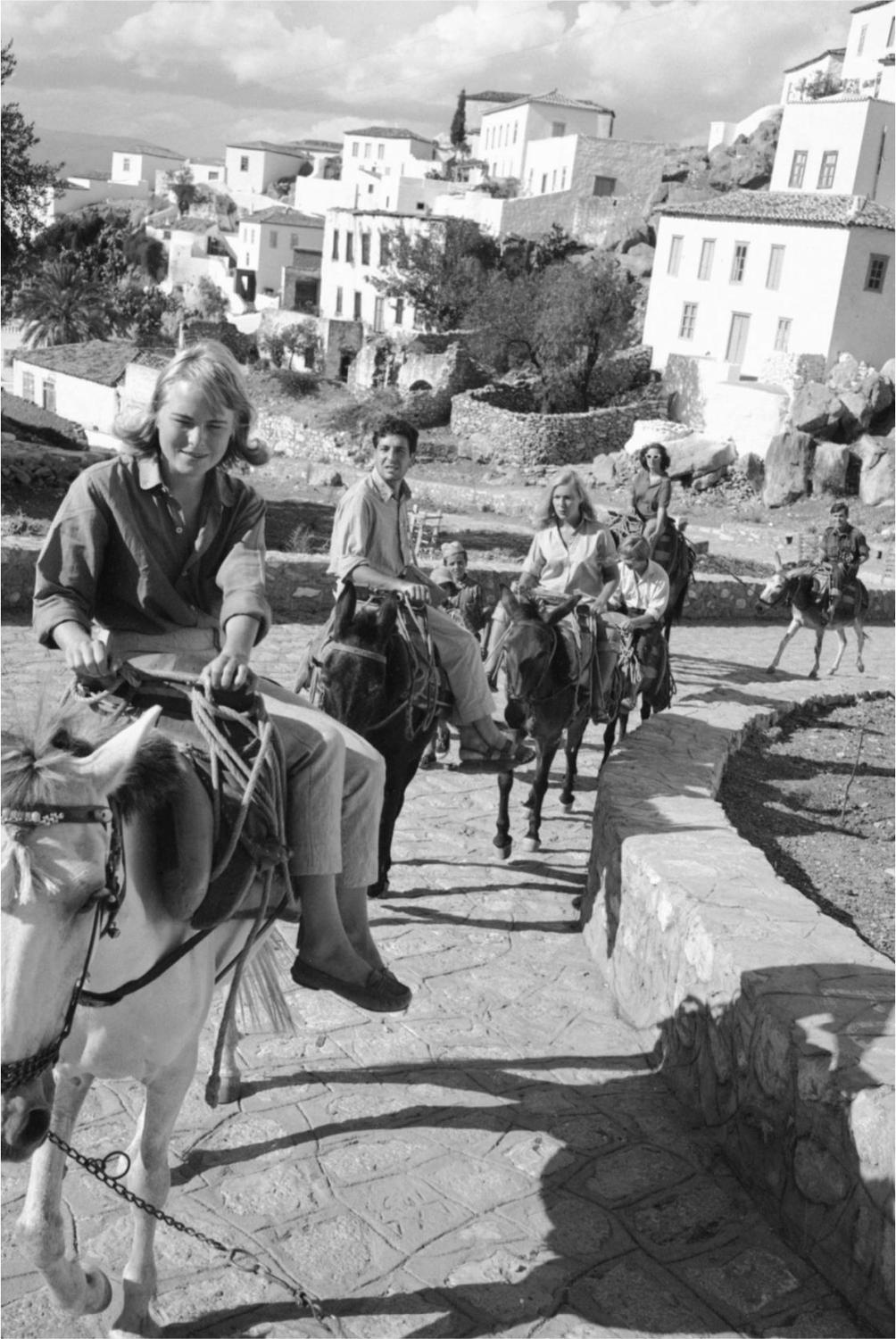
Marianne Ihlen, followed by Leonard and others, on a mule ride in Hydra, 1960.
Cohen had, in fact, already achieved a degree of literary recognition in Canada, where he had been born in Montreal, Quebec on 21 September 1934. Leonard had a privileged early life, growing up in the well-to-do district of Westmount. Although there were certainly wealthier families in the area, few could match his own in terms of status. The Cohens were one of the most prominent Orthodox Jewish families in Montreal. Leonards father Nathan was a successful businessman, the owner of a high-end clothing store in Montreal, whose ancestors had built synagogues and founded several newspapers when settling in Canada. His mother Masha was a Rabbis daughter of Russian descent, and only a recent immigrant from Lithuania when she married Nathan. Leonard would never deny that his was a fortunate childhood, with the familys staff including a nanny (who he and his sister Esther called Nursie), an Irish maid named Mary, and an African-American gardener-cum-chauffeur called Kerry. It was a close-knit family: the Cohens and their relatives would gather together regularly most often at the home of his paternal grandmother for tea parties, as Cohen would later describe in his first novel, the semi-autobiographical The Favourite Game.
The security of this comfortable family life would be abruptly shattered when Leonard was just nine years old. In 1944, his father Nathan passed away following a long illness. Leonard would describe what happened in two unpublished short stories, Ceremonies and My Sisters Birthday, written around fourteen years later. Nursie had broken the news to the Cohen children early in the morning. They should be quiet, she said, as their mother was still asleep. The funeral would take place the following day. But that couldnt be right, thought Leonard, for tomorrow was his sisters birthday. Significantly, at no point could Leonard remember crying. In fact, he would admit he wept more when his dog Tinkie died a few years later: I didnt feel a profound sense of loss maybe because he was very ill throughout my entire childhood. It seemed natural that he died. He was weak and he died. Maybe my heart is cold.
Whilst Cohen might have outwardly professed this, however, the very fact that he would continually return to his fathers death in his writing calls his claims of emotional detachment into question. Years later, in The Favourite Game, Leonard would recall taking one of his fathers bow-ties, slicing it open, and hiding a small piece of paper inside on which hed written something, before burying it in the back garden. He said he had no recollection of what he had written and that he had been looking for his buried note for years. There can be little doubt that Nathans death was integral in shaping the character of the young Leonard, leaving him with a self-confessed morbidly melancholy outlook that would stay with him for the rest of his life.
An emotional catalyst of a very different kind occurred in Leonards early teens, when his sudden adolescent obsession with girls coincided with the development of his interest in a rather more unusual field: hypnotism. His guide was the grandly titled 25 Lessons in Hypnotism: How to Become an Expert Operator by M. Young, of which the first two lessons in particular might have been written as advice to the performer Cohen would become: Your features should be set, firm, and stern. Be quiet in all your actions Let your voice grow lower, lower, until just above a whisper. Pause a moment or two. You will fail if you try to hurry.
Undoubtedly nurturing pubescent fantasies about Mary, the family maid, Leonard embarked on a bizarre plan of seduction. Emboldened by what he had learnt from Youngs handbook, he hypnotised her, and ordered her to undress. As he would recall in The Favourite Game via his alter-ego Lawrence Breavman, it was his first sight of a naked woman. Whether he had indeed mastered hypnotic powers, or the young maidservant was instead a fully conscious, compliant partner in the exercise, is open to conjecture. Regardless, after a time, Mary awoke, just as Leonard had begun to panic that his mother might return home, and find her employee au naturel with her teenage son. For the youthful Cohen, the whole episode was an early confirmation of the power of gentle persuasion be it via the hocus-pocus repetition of the hypnotist, or the eloquence of the written word.
From the age of thirteen, Leonard would wander the streets of Montreal at night, getting a taste of the seedy nightlife of music, drink and casual sex that was still a grown-up world, out of his reach. These nocturnal ramblings were most often undertaken alone, although as he grew older he began to be regularly accompanied by his best friend, Mort Rosengarten. The two had first met back in 1944 at summer camp, just five months before the death of Leonards father. By the time they attended junior high school together, at Westmount High, they were bosom buddies.
Cohen had attended Roslyn Elementary School until he was fourteen, followed by Westmount High. It was at the latter that he began to take a particular interest in the arts, literature and music, developing a fondness for the work of the Spanish poet and playwright, Federico Garcia Lorca. When I was a young man, Cohen recalled, I could not find a voice. It was only when I read, even in translation, the works of Lorca that I understood there was a voice. He gave me permission to find a voice, to locate a voice; that is, to locate a self, a self that is not fixed, a self that struggles for its own existence.
Around the same time, Leonard began to teach himself the rudiments of playing a guitar on a second-hand Spanish acoustic he bought from a pawnshop for $12. He had met a young Spanish busker in Murray Hill Park, who gave him three lessons on the six chords found in all flamenco music. When Cohen returned for his fourth lesson, however, it was to discover that his teacher had tragically committed suicide. Leonard had never even learned his name. Cohen later expressed a great affinity for Spanish culture and remarked, It was that guitar pattern that has been the basis of all my songs and all my music. Although it would be some years before the two disciplines came together in any meaningful way, the die was cast: words and music would be central to Leonards evolution as a creative artist.
Font size:
Interval:
Bookmark:
Similar books «Leonard Cohen: An Illustrated Record»
Look at similar books to Leonard Cohen: An Illustrated Record. We have selected literature similar in name and meaning in the hope of providing readers with more options to find new, interesting, not yet read works.
Discussion, reviews of the book Leonard Cohen: An Illustrated Record and just readers' own opinions. Leave your comments, write what you think about the work, its meaning or the main characters. Specify what exactly you liked and what you didn't like, and why you think so.

